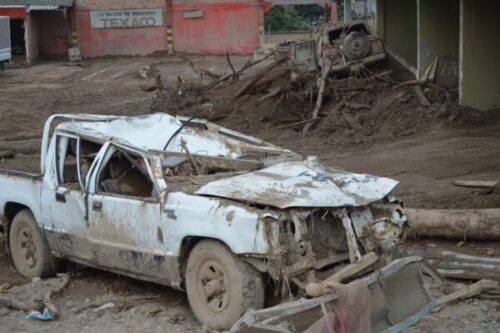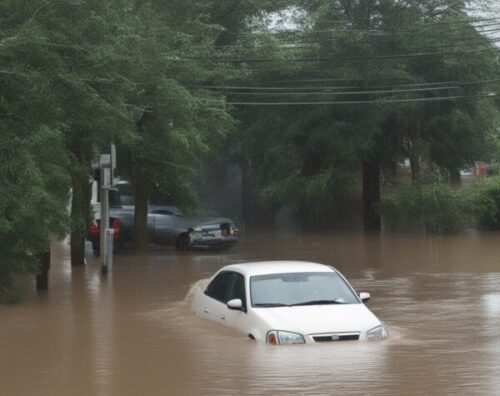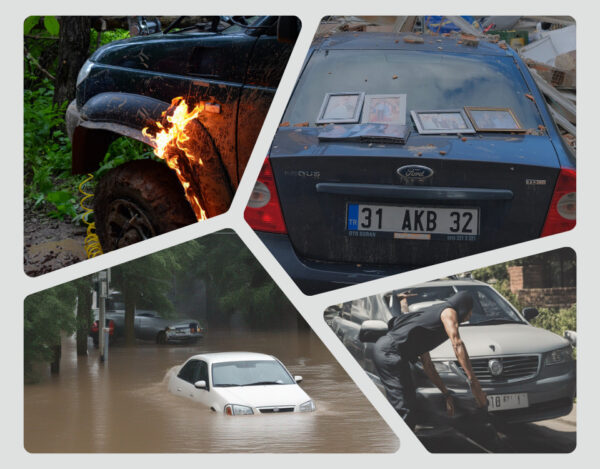Why is comprehensive insurance necessary for your car?

Do you need insurance to get a license in Texas
August 8, 2023
Should i get comprehensive car insurance before Title transfer
August 16, 2023Table of Contents
ToggleWhy is comprehensive insurance necessary for your car?
Why is comprehensive insurance necessary for your car? Comprehensive insurance is necessary for your car because this policy covers damage to your car from the events such as theft, fire, vandalism, and natural disasters. It also covers the risk of animals hitting, falling objects, and glass breakage.
These are the risk that is beyond your control. This type of insurance is not required by law in most states, but it is a good idea to have it if you want to protect your car from costly damage.
Here are some examples of events that would be covered by comprehensive insurance:
- Your car is stolen.
- Your car is damaged by fire.
- Your car is vandalized.
- Your car is damaged by a natural disaster, such as a flood or tornado.
- Your car is hit by an animal.
- A falling object damages your car.
- Your car’s windshield is broken.
If any of the risk events listed above occur and you don’t have comprehensive insurance, you are not eligible to receive reimbursement from your insurer. You are responsible for covering the cost of the damage. This can be very expensive, especially if your car is brand new or pricey.
In addition, many leasing companies require comprehensive insurance in order to finance or lease a car. This is because they want to protect their investment in the vehicle.
If you are considering not getting comprehensive insurance, you should carefully weigh the risks and benefits of it. Comprehensive insurance is a good way to protect yourself financially from unexpected events.
Here are some additional reasons why comprehensive insurance may be necessary for your car:
- You live in an area with a high crime rate.
- You have a valuable car.
- You frequently drive in rural areas or areas with extreme weather conditions.
- You have a loan or lease on your car.
If any of these factors apply to you, then comprehensive insurance is a good idea to protect your car and your financial investment.

Is it okay to not have comprehensive insurance?
Whether or not it is okay to not have comprehensive insurance depends on your individual circumstances. If you have a car that is not worth much, and you can afford to pay for repairs out of pocket, then you may not need comprehensive insurance. However, if you have a valuable car, or if you live in an area with a high crime rate or extreme weather conditions, then comprehensive insurance is a good way to protect yourself financially from the unexpected.
Here are some factors to consider when deciding whether or not to get comprehensive insurance:
- The value of your car.
- Your budget.
- Your driving habits.
- The crime rate in your area.
- The weather conditions in your area.
- Whether you have a loan or lease on your car.
If you are hesitant about whether or not you should need comprehensive insurance, you should consult your insurance provider. They can assist you in determining your personal risks and suggest the appropriate type of coverage for your need.
Here are some other considerations:
- Comprehensive insurance is not required by law in most states. However, many lenders require borrowers to have comprehensive insurance if they are financing or leasing a car.
- Comprehensive insurance can be expensive, but it can save you a lot of money in the long run if your car is damaged in an event that is not your fault.
- If you decide not to get comprehensive insurance, you should make sure you have enough money saved up to cover the cost of repairs or a replacement car if something happens to your vehicle.

Do I really need comprehensive?
Whether or not you need comprehensive insurance depends on your circumstances. Here are some factors to consider:
- The value of your car. If your car is not worth much, you may not need comprehensive insurance. However, if your car is expensive, comprehensive insurance can help protect your investment.
- Your budget. Comprehensive insurance can be expensive, so you need to make sure you can afford it.
- Your driving habits. If you are a safe driver who is unlikely to get into an accident, you may not need comprehensive insurance. However, if you are a more aggressive driver, you may want to consider comprehensive insurance to protect yourself against the unexpected.
- The amount of crime in your neighborhood. To safeguard your automobile against theft if you reside in a high-crime area, you might want to think about purchasing comprehensive insurance.
- The local weather conditions. If you reside in a region that frequently has severe weather, such as hail or tornadoes, you might want to think about purchasing comprehensive insurance to safeguard your vehicle.
- Whether your car is financed or leased. Your lender can insist that you have comprehensive insurance if you have a loan or lease on your car.

pros and cons of comprehensive insurance:
Pros:
- Comprehensive insurance will help shield your vehicle from harm caused by incidents like theft, vandalism, fire, and natural catastrophes that are not your fault.
- Comprehensive insurance can help you get a replacement car if yours is totaled in an accident.
- Comprehensive insurance can help you pay for repairs to your car if it is damaged in an event that is not your fault.
Cons:
- Comprehensive insurance is expensive.
- You may not need comprehensive insurance if your car is not expensive and you can afford to pay for its repairs out of your pocket.
- Comprehensive insurance does not cover damage to your car in a collision.
Ultimately, the decision of whether or not to get comprehensive insurance is a personal one. You need to weigh the pros and cons and decide what is best for you and your financial situation.
Why is comprehensive insurance so expensive?
Comprehensive insurance is so expensive because it covers a wide range of dangers, including animal collisions, fire, natural catastrophes, theft, vandalism, and vandalism, it is very expensive. Although they don’t happen as frequently as accidents, these incidents can cost a lot to fix or replace your car. Even though it may not happen frequently, insurance firms must charge hefty rates to cover the cost of these claims.
In addition to the cost of the events themselves, insurance companies also need to factor in the cost of investigating claims, paying out settlements, and dealing with legal fees. This can add up to a significant amount of money, which is why comprehensive insurance is so expensive.

If you want to lower the cost of your comprehensive insurance, you can consider the following:
Use a less expensive vehicle.
- Enhance your driving history.
- Raise the deductible.
- Request estimates from several insurance providers.
It is important to note that comprehensive insurance is not required by law in most states. However, it is a good idea to have this coverage if you want to protect your car from damage caused by events other than accidents.
Here are some additional factors that can affect the cost of comprehensive insurance:
- Your vehicle’s age. The cost of comprehensive insurance may rise for older vehicles since they are more likely to be stolen or vandalized.
- Your car’s brand and model. The cost of comprehensive insurance may differ for various vehicles depending on how expensive they are to maintain or replace.
- The location where you live. The crime rate in your area can also affect the cost of comprehensive insurance.
If you are concerned about the cost of comprehensive insurance, it is important to talk to your insurance agent. They can help you understand the factors that affect the cost of your insurance and recommend ways to lower your premiums.
Does comprehensive car insurance have a deductible?
Yes, comprehensive car insurance has a deductible. The deductible is the amount of money you have to pay out of your pocket before your insurance company will cover the cost of repairs or replacement. The deductible is typically set by the insurance firm, but you can usually choose a higher or lower deductible to save money on your premiums.
For example, if you have a $700 deductible and your car is damaged in a hailstorm, you will have to pay the first $700 of the repair costs. The insurance company will then pay the remaining costs, up to the limit of your policy.
Your deductible’s size will have an impact on your premium. While a higher deductible will produce reduced rates, it will also increase your out-of-pocket expenses if your automobile is damaged. A greater deductible will raise your premiums, but you’ll pay less out of pocket if your car is damaged as a result.
You should choose a deductible that you are comfortable with and that fits your budget. If you have a lot of money saved up, you may want to choose a lower deductible. If you are on a tight budget, you may want to choose a higher deductible.
It is significant to remember that comprehensive insurance does not protect against collision-related damage to your car. If your car is damaged in an accident, you must file a claim with your collision insurance. Your comprehensive insurance deductible and collision insurance deductible will be different.
What does comprehensive coverage mean for car insurance?
Comprehensive coverage in car insurance acts as your safety net against a variety of unexpected events. This type of coverage goes beyond collisions, protecting your vehicle from damages caused by theft, vandalism, fires, natural disasters, animal impacts, falling objects, and glass breakage. It’s your financial shield when you’re not at fault.
Comprehensive coverage isn’t a legal obligation, yet it often becomes a requirement from lenders if you’re leasing or financing your vehicle. This added layer of protection ensures that the investment your lender has made in your car is safeguarded against unpredictable events, further emphasizing its importance.
If you have comprehensive coverage and your car is damaged in an event that is not your fault, your insurance company will pay for the repairs or replacement of your car, up to the limits of your policy.
An important factor to keep in mind regarding comprehensive coverage is the deductible. This refers to the fixed sum you need to cover from your own funds before your insurance coverage takes effect. Although the details can differ from state to state, this practice is widely followed.”
“The expense of comprehensive coverage varies based on factors such as your car’s make, model, value, driving history, and the insurance provider you select. Comprehensive coverage typically safeguards against these risks:
- Theft
- Vandalism
- Fire
- Natural disasters
- Animal damage
- Falling objects
- Glass breakage
However, there are risks that comprehensive coverage usually doesn’t cover:
- Collision damage to your car
- Damage resulting from your negligence
- Pre-existing damage to your car
- Damage caused by war or civil disturbances.

How to check if you have comprehensive car insurance?
There are a few ways to check if you have comprehensive car insurance:
- Check your insurance policy. The easiest way to check if you have comprehensive car insurance is to look at your insurance policy. Your policy will list all of the coverage that you have, including comprehensive coverage.
- Call your insurance company. If you don’t have your insurance policy handy, you can call your insurance company and ask them if you have comprehensive coverage. They will be able to look up your policy and tell you if you have comprehensive coverage.
FAQ:
Why is it important to have comprehensive?
Comprehensive insurance protects your car from non-accident-related damage like theft, fire, floods, or falling objects. It gives peace of mind for risks you can’t control.
What are the benefits of comprehensive insurance policy?
It covers damages from weather, vandalism, animals, and more. It also helps avoid costly repairs or losses when something unexpected happens.
Should I use comprehensive insurance?
Yes, if you want full protection. It’s especially helpful for new, expensive, or financed cars or if you live in areas with high theft or natural disasters.




